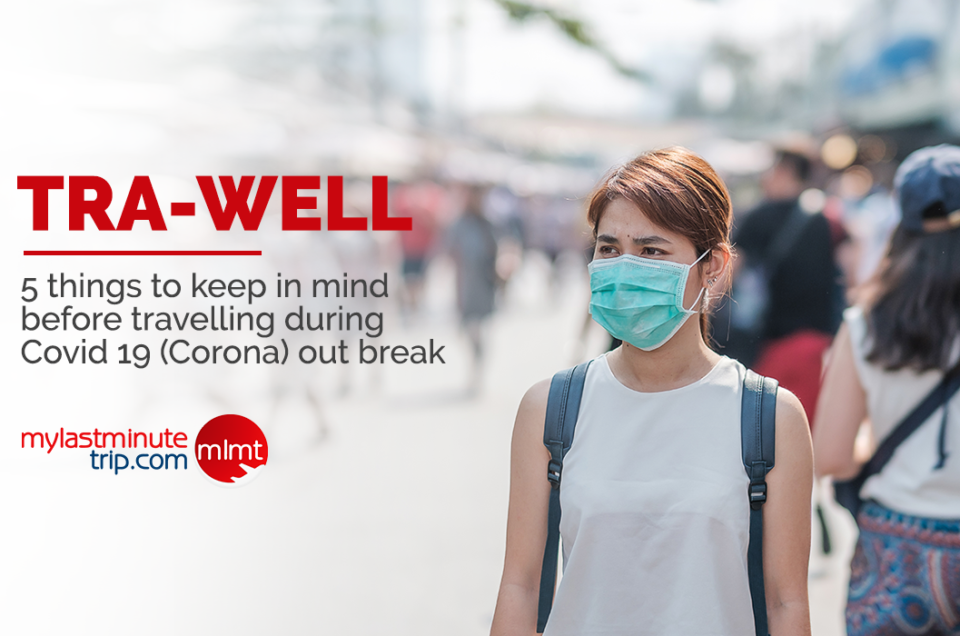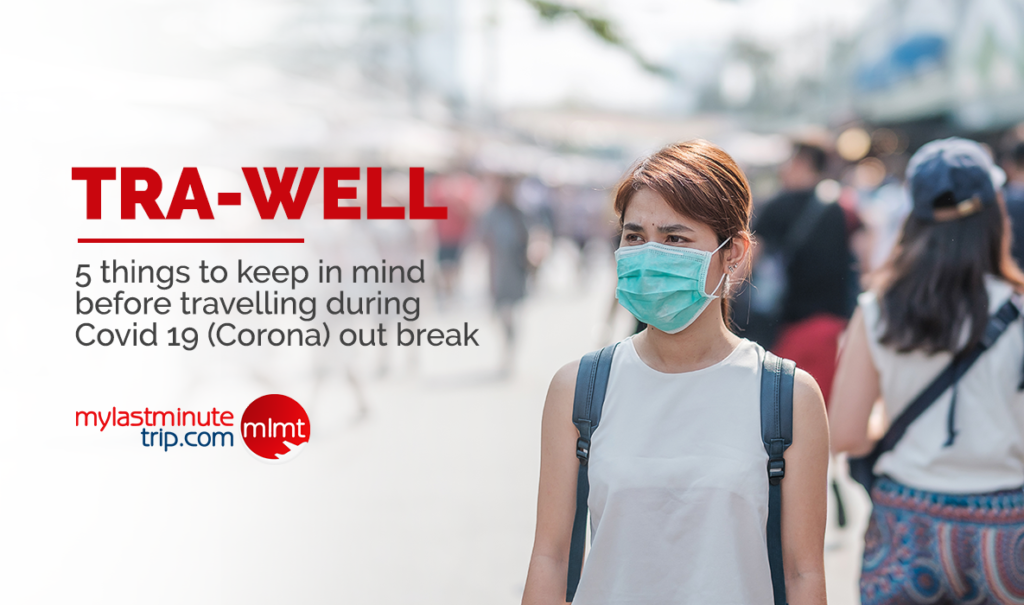As the world watches the Covid-19 coronavirus develop into what may before long become a pandemic, numerous travelers have been left thinking about what this implies for trips they have booked. Regardless of whether you’re making a beeline for China, Italy, or not even close to current flare-ups, here’s all that you should thoroughly consider before adjusting or dropping your travel plans.
- Check government websites and set alerts.
if you are planning to visit any travel destination that has had an outbreak (even in neighboring countries), the hazardous risk isn’t generally that you will be presented to the infection but when you will returning to home and the process of travel delays, inspections, etc. In one of the examples recently, the U.K. reported that travelers who have visited anyplace north of the city of Pisa in Italy should self-isolate for 14 days upon returning. Ensure that you know about these information for anyplace you intend to visit, while additionally remembering that episodes—and subsequently, related policies are developing. Basically check the government websites of the country you are planning to visit.

- Check your travel insurance policies.
While most polices don’t cover the reasons you may cancel due to the coronavirus (like new tourism advisors for your travel destination, city lockdowns, or essentially not having any desire to go), policies with a “drop in any way, shape or form” arrangement will have your back. Peruse the fine print of the policies you purchased, and contact your policy agent for explanation. The event that you didn’t buy travel policy insurance, realize that your excursion might be secured through your credit/debit card. A few cards incorporate travel protection as an advantage, however the inclusion fiercely fluctuates. Visit your card supplier’s site or get in touch with them straightforwardly for more information.

- Follow general health precautions everywhere you go.
Regardless of whether you choose to stay at home or hit the street, make a point to wash your hands regularly and thoroughly, purify routinely contacted objects, and make the strides you typically may to avoid flu or fever. And keep in mind to avoid contact with sick people, it’s additionally critical to recognize and dismiss rumors of the disease. The WHO has an abundance of data like this on their site. Concentrate on keeping a decent eating regimen, getting sleep for 7-8 hours, keeping your immunity up, maintaining a strategic distance from crowd, and following great cleanliness. Simply use the common sense of following the good health advice given by our peers.
- Flights & Sanitation
Planes are small spaces with a lot of people on them, and can be involved in transmitting diseases. While it’s not clear if most carriers are changing their cleaning methods as a result of the coronavirus, we do know how they commonly clean plane cabins. Airplanes do get ordinary cleanings in the middle of flight change, and a complete cleaning when the airplane is stopped for a longer time. At the point when the plane is cleaned, including utensils, seats and covers — are cleaned thoroughly.

- Medicines and prescriptions – keep them handy
Doctors recommend stocking a 30-day supply of any required medications and to consider doing same for family and everyone’s medication supplies like vitamin/ protein meds, clothing, and diapers, on the off chance that you have kids. Keep in mind, liquor is a decent disinfectant for coronaviruses so try to keep your home clean. Toss out those tissues in a dustbin after you clean out your nose. The WHO additionally suggests cleaning frequently contacted surfaces, similar to telephones and tablets.



 We aim to provide Optimum Travel Services and providing a One-Stop-Solution to our customers, Our Team comes together each day to design a trip that offers the single most comprehensive travel experience to our customers.
We aim to provide Optimum Travel Services and providing a One-Stop-Solution to our customers, Our Team comes together each day to design a trip that offers the single most comprehensive travel experience to our customers.